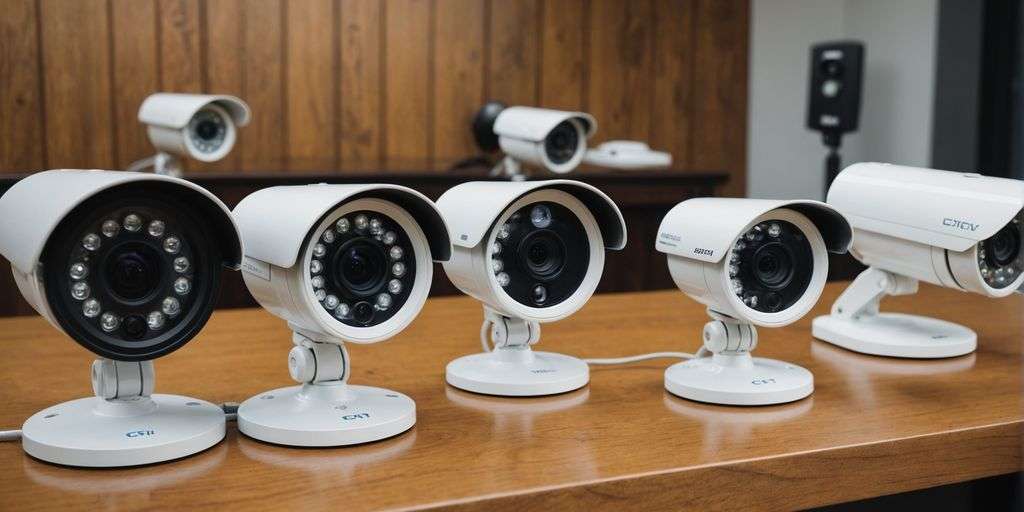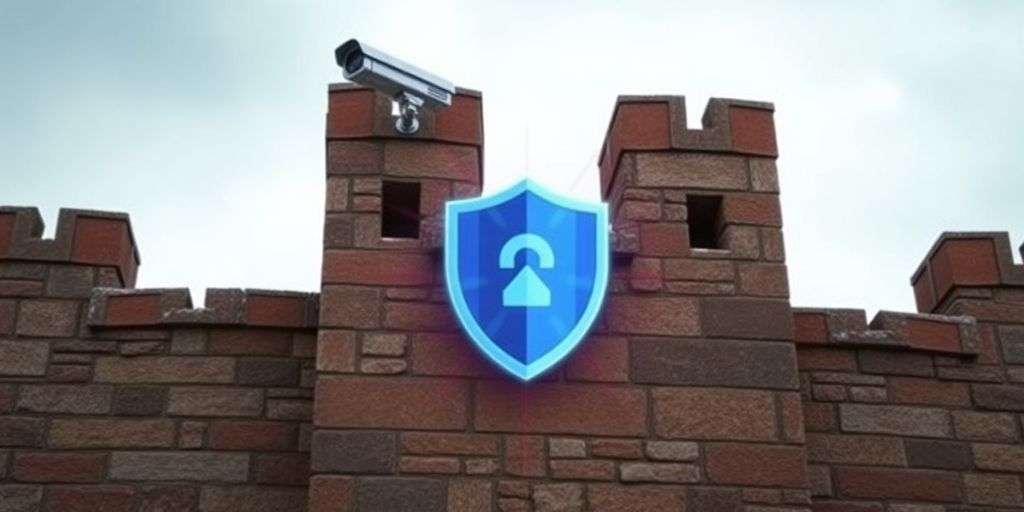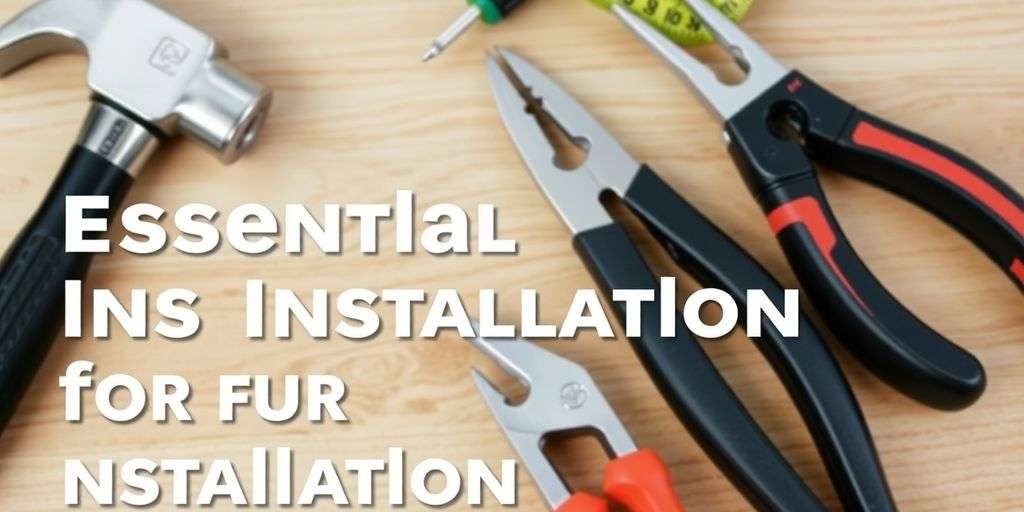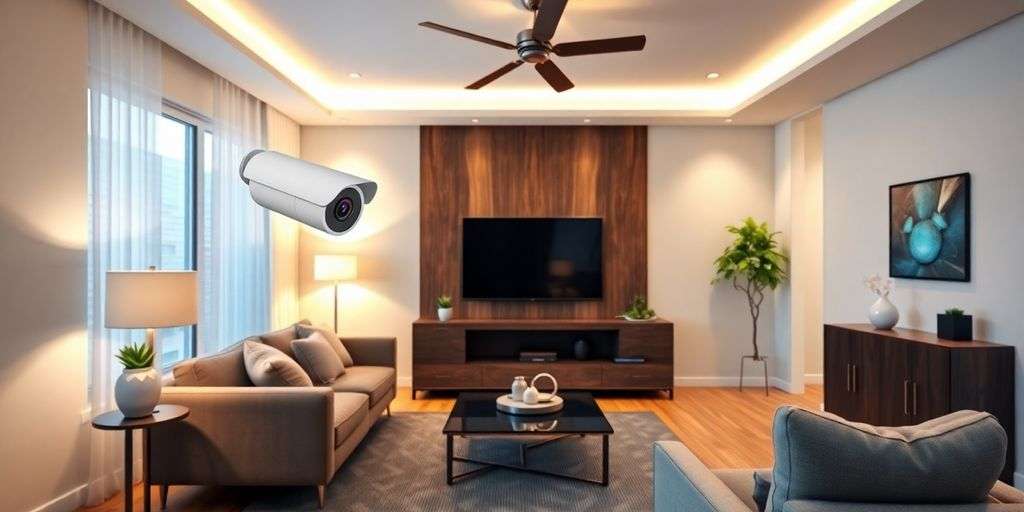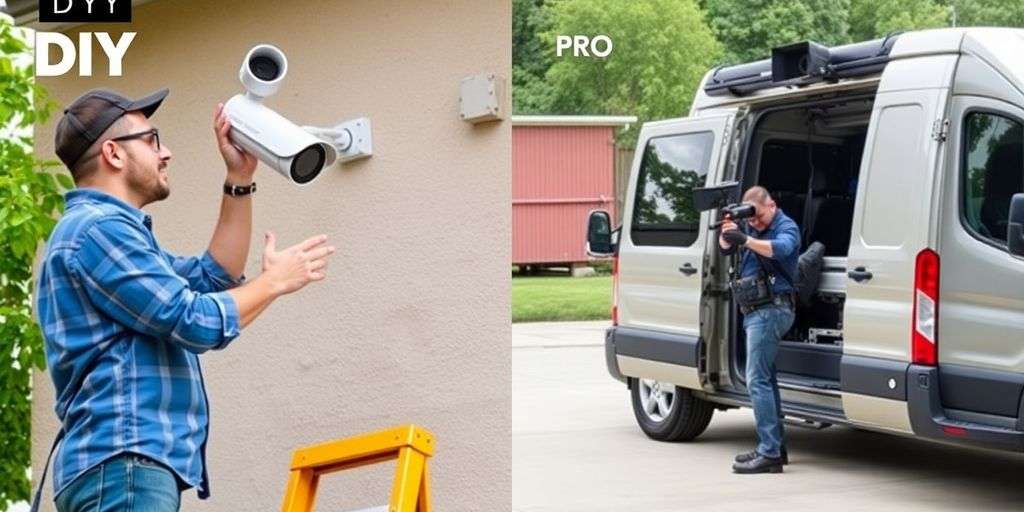Understanding Different Types of CCTV Cameras

Dome Cameras: Versatile and Discreet
Dome cameras are known for their versatility and discreet design. They are typically mounted on ceilings and can cover a wide area. Their unobtrusive appearance makes them ideal for indoor use, such as in retail stores and offices. Dome cameras often come with features like infrared for night vision and vandal-resistant casings.
Bullet Cameras: Long-Range Surveillance
Bullet cameras are easily recognisable by their long, cylindrical shape. They are perfect for long-range surveillance, often used outdoors. These cameras are usually weatherproof and come with a protective casing. They are ideal for monitoring large areas like parking lots and backyards.
PTZ Cameras: Flexible and Dynamic
PTZ (Pan-Tilt-Zoom) cameras offer a high level of flexibility. They can rotate left to right, tilt up and down, and zoom in and out. This makes them suitable for monitoring large spaces where you need to follow moving objects. PTZ cameras are often used in places like stadiums and warehouses.
Thermal Cameras: Seeing Beyond the Visible
Thermal cameras detect heat rather than light, allowing them to see in complete darkness and through smoke or fog. They are often used in high-security areas and for industrial applications. These cameras are invaluable for detecting intruders in low-visibility conditions.
Key Features to Look for in a CCTV Camera
Resolution and Image Quality
When selecting a CCTV camera, resolution and image quality are paramount. Higher resolution cameras provide clearer and more detailed images, which can be crucial for identifying faces or licence plates. Look for cameras that offer at least 1080p resolution for optimal clarity.
Night Vision Capabilities
Night vision is essential for 24/7 surveillance. Cameras equipped with infrared LEDs can capture clear footage even in complete darkness. Consider the range of the night vision to ensure it covers the necessary area.
Weather Resistance and Durability
For outdoor cameras, weather resistance is a key feature. Ensure the camera is rated for outdoor use and can withstand various weather conditions, from rain to extreme temperatures. Look for IP ratings like IP66 or IP67 for robust protection.
Smart Features and Integration
Modern CCTV cameras often come with smart features such as motion detection, facial recognition, and integration with other security systems. These features can enhance the functionality of your security setup, making it more efficient and user-friendly.
Choosing the right features for your CCTV camera can significantly impact the effectiveness of your security system. Make sure to assess your specific needs and select a camera that meets those requirements.
Installation and Maintenance Tips for CCTV Cameras
Optimal Placement for Maximum Coverage
To get the best out of your CCTV cameras, place them in strategic locations. Corners of rooms and entrances are ideal spots. Make sure the cameras cover all entry points and high-traffic areas. Avoid placing cameras where they can be easily tampered with or where their view is obstructed.
Wiring and Power Considerations
Proper wiring is crucial for the effective functioning of your CCTV system. Use high-quality cables and connectors to avoid signal loss. Ensure that your cameras have a reliable power source. For outdoor cameras, consider using weatherproof cables and connectors to prevent damage from the elements.
Regular Maintenance and Updates
Regular maintenance is essential to keep your CCTV system in top condition. Clean the camera lenses and check for any signs of wear and tear. Update the firmware regularly to benefit from the latest features and security patches. Regular checks can help you identify and fix issues before they become major problems.
Troubleshooting Common Issues
Even the best CCTV systems can encounter problems. Common issues include poor image quality, connectivity problems, and power failures. If you experience any of these issues, check the cables and connections first. Restarting the system can also resolve many problems. If the issue persists, consult a professional for assistance.
Regular maintenance and strategic placement of your CCTV cameras can significantly enhance your security system’s effectiveness. Stay vigilant and proactive to ensure your system is always in optimal condition.
Choosing the Right CCTV Camera for Your Needs
Home Security: Protecting Your Family
When it comes to home security, selecting the right CCTV camera is crucial. Your family’s safety is paramount, and a good camera can provide peace of mind. Look for features like high resolution, night vision, and motion detection. These features ensure that you can monitor your home effectively, even in low light conditions. Additionally, consider cameras that integrate with your smart home system for added convenience.
Commercial Use: Safeguarding Your Business
For businesses, CCTV cameras are essential for protecting assets and ensuring the safety of employees and customers. Opt for cameras with wide-angle lenses and high-definition video to cover large areas. It’s also important to choose cameras with robust storage solutions, so you can keep footage for extended periods. In commercial settings, clearview fencing can complement your CCTV system by providing a physical barrier that enhances security.
Industrial Applications: Monitoring Large Areas
In industrial environments, CCTV cameras need to be durable and capable of covering vast areas. Look for cameras with features like pan, tilt, and zoom (PTZ) to monitor different sections of your facility. Thermal cameras can also be beneficial in detecting heat signatures, which is useful in environments where fire hazards are a concern. Ensure that the cameras are weather-resistant to withstand harsh conditions.
Specialised Needs: Tailored Solutions for Unique Situations
Some situations require specialised CCTV solutions. For instance, in high-risk areas, you might need cameras with advanced features like facial recognition or licence plate reading. In other cases, covert cameras might be necessary for discreet monitoring. Always assess your specific needs and consult with a security expert to find the best solution for your unique situation.
Choosing the right CCTV camera involves understanding your specific needs and the environment in which the camera will be used. Whether it’s for home security, commercial use, industrial applications, or specialised needs, there’s a camera out there that fits your requirements perfectly.
Conclusion
Choosing the right CCTV camera can seem like a big task, but it doesn’t have to be. By thinking about what you need, where you will put the cameras, and how much you want to spend, you can find the perfect fit for your home or business. Remember, the best camera is the one that meets your needs and helps keep you safe. So take your time, do your research, and make a choice that you feel good about. Happy shopping!
Frequently Asked Questions
What are the main types of CCTV cameras?
The main types of CCTV cameras are Dome Cameras, Bullet Cameras, PTZ Cameras, and Thermal Cameras. Each type has its own unique features and is suitable for different surveillance needs.
What features should I look for in a CCTV camera?
When choosing a CCTV camera, look for key features such as high resolution and image quality, night vision capabilities, weather resistance, durability, and smart features like integration with other security systems.
How should I maintain my CCTV cameras?
To maintain your CCTV cameras, ensure they are optimally placed for maximum coverage, check wiring and power connections regularly, perform routine maintenance and updates, and troubleshoot common issues as they arise.

